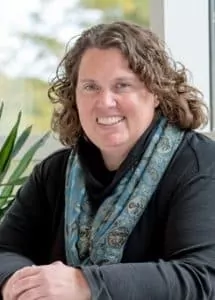A Health Care Power of Attorney alleviates decision-making burdens for loved ones
Earlier this year, my father passed away. My family and I were fortunate he had an estate plan in place to assist with the end-of-life decisions we faced. All of the documents in an estate plan serve important purposes, but from an emotional perspective – particularly during the most challenging of times – the Healthcare Power of Attorney was invaluable. My father’s preparation alleviated much of the decision-making burden and took away any guesswork surrounding his care. Knowing exactly what he wanted as his condition deteriorated allowed us to find peace throughout the process. We could then focus on making the most out of our final days and moments with him.
What is a Health Care Power of Attorney?
No document in an estate plan has the potential for a greater impact on our life than the Healthcare Power of Attorney (HPOA). It serves as your literal communicative lifeline for medical decisions should you become incapacitated or otherwise unable to speak for yourself.
The name of this document may vary depending on the location. Other names for the Healthcare Power of Attorney include:
- Health Care Proxy
- Durable Power of Attorney for Healthcare
- Advanced Health Care Directive
- Health Care Surrogate
A HPOA includes a named person – generally referred to as an agent, proxy, representative or advocate – of your choosing. This person ensures your wishes are followed and makes decisions on your behalf.
As my father’s named health care agent, I could refill prescriptions, participate in appointments, and have discussions with his health care team that I would otherwise not have access to, thanks to the document’s HIPAA release. Through this appointment, I was able to honor his wishes every step of the way.
How do I choose my health care agent?
Choosing your health care agent is a very personal choice. Carefully consider your options before making a decision. While there is no right or wrong choice when determining your health care agent, here are some characteristics to think about:
- A legal adult – Your agent must be at least 18 years old and be of sound mind to serve as a health care agent.
- Dependable – Your agent should know your values and priorities. They may need to make a decision that isn’t spelled out in your Healthcare Power of Attorney document. The more information you can share with them, the better prepared they will be.
- Assertive – It’s common for family members and friends to have their own opinions of what’s best for you, but that may not be what you want for yourself. Choose someone who can hold firm on the choices you made, especially in highly stressful and emotional situations.
Once you decide who you want as your agent, reach out to them to start a conversation about the role. It’s possible the person may not feel comfortable and therefore decline. Or they might want to learn more about the responsibilities before saying yes. Even in the case of a willing agent, take your time and be thorough in your conversations.
What’s better than one health care agent? More than one health care agent! One or more backup agents are actually encouraged, particularly if there is any doubt about the primary agent’s willingness or availability to perform the duties.
What happens if I don’t have a Healthcare Power of Attorney?
If you do not have an agent and become incapacitated or unable to communicate, a state court appoints someone to make decisions about your medical care. This may or may not be someone you want to make important decisions on your behalf. These situations can result in chaos and conflict, distracting friends and family from the care you need.
How to have the conversation
A few tips to start the dialog with family and other trusted friends:
- Discuss your own plan – Share your thoughts and talk about your own plans to ease tension and help alleviate fears others may have. Shows them they’re not alone in the planning process.
- Share something you learned – Offering helpful information that you learned in your estate planning process can help someone who may feel overwhelmed by their own process.
- Leave the window of conversation open – Many people are not prepared to have this conversation on a whim. That’s okay! Simply offering to talk about it another time can be enough to make someone feel comfortable. This way, they’ll know they can approach you in the future.
Without a doubt, the number one lesson I learned from my experience with my father was to start the process early. While considering these scenarios in advance are often difficult, it’s essential to be proactive. Make time to have these conversations, particularly in uncertain times.
 Renee Fry is the Co-Founder and CEO of Gentreo, an on-line software provider with a mission to provide affordable, accessible and easy-to-use estate planning tools for everyone. Renee has led and helped start multiple companies, served in the Massachusetts government cabinet as head of Business and Technology and is a graduate of Harvard Business School. Learn more about Gentreo here and reach out with questions to Renee by email at info@gentreo.com or by phone at 617-804-1451.
Renee Fry is the Co-Founder and CEO of Gentreo, an on-line software provider with a mission to provide affordable, accessible and easy-to-use estate planning tools for everyone. Renee has led and helped start multiple companies, served in the Massachusetts government cabinet as head of Business and Technology and is a graduate of Harvard Business School. Learn more about Gentreo here and reach out with questions to Renee by email at info@gentreo.com or by phone at 617-804-1451.










